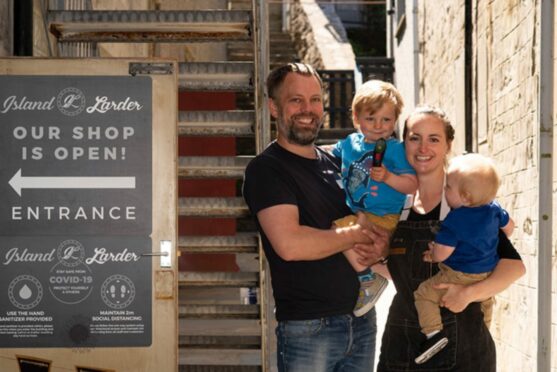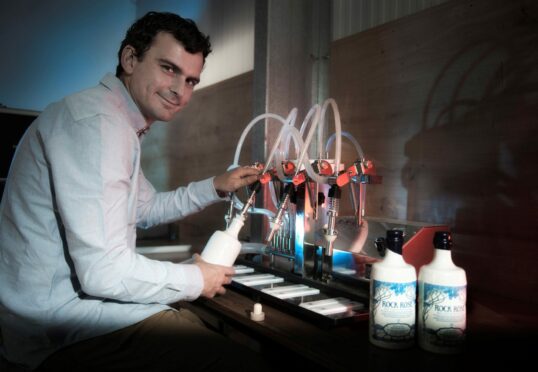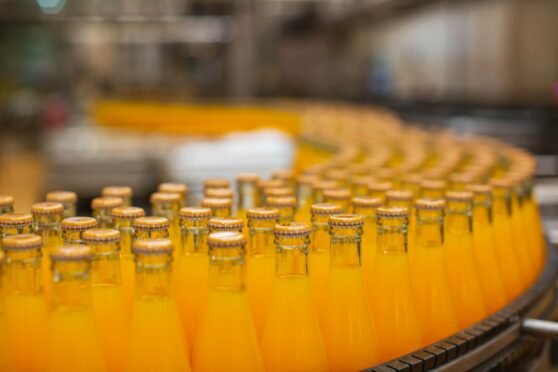It’s a moment that many budding food and drink entrepreneurs will recognise – you taste a product for the first time and think, “I could do better than that”.
Yet how do you take your idea for a new product and turn it into a thriving business?
Fortunately, help is at hand from a wide range of organisations throughout the north and beyond.
One starting point for many entrepreneurs will be Business Gateway, the Scottish Government service for start-ups and growing companies.
Business Gateway’s services are delivered by local councils, with some running courses and offering advice themselves and others outsourcing them.
Highland, Moray, and the island councils have in-house advisors and then bring in specialists to run specific courses, while a social enterprise called Elevator delivers Business Gateway services for the Aberdeen City and Aberdeenshire local authorities.
Tailored business support and advice
Many budding food and drink founders will begin by logging onto Business Gateway’s website and using its “Planning to start tool”, a 10-minute questionnaire to help entrepreneurs identify the steps they need to follow and how to get help.
More tailored advice and support then comes from the local Business Gateway offices.
Its free services include templates for business plans, webinars to help develop skills, and one-to-one advice.
As well as offering advice that’s tailored to the local area – as businesses starting in a town or city will often need different help to those founded in the countryside – there is also help available for specific industries, including food and drink.
After small companies have started to grow, Business Gateway can also connect them to Highlands and Islands Enterprise (HIE) – and Scottish Enterprise (SE) in the north-east – for more targeted advice and help in areas including innovation and exports.
Industry bodies such as the Food and Drink Federation Scotland and Scotland Food and Drink also run training courses and provide insights and resources to help entrepreneurs and small businesses, including through “The Academy”, a training programme that covers “seeding growth”, “accelerating growth”, and “commercial excellence”.
Tapping in to specialist expertise
Food and drink founders can also tap into more specialist expertise to help them develop their products.
That could include harnessing knowledge from Scotland’s further education colleges, research institutions, and universities.
Interface, which was founded in 2005, acts as a matchmaker for businesses that want to team up with academics.
Howell Davies, the organisation’s sector engagement project manager, said: “Interface has plenty of examples of supporting entrepreneurial businesses across the North – innovation and working with academia isn’t bound by distance.
“Indeed, 70% of our collaborations are between businesses and universities in different geographical areas.”
Mr Davies pointed to Dunnet Bay Distillers – the Caithness-based maker of Rock Rose gin and Holy Grass vodka – and described the company as “real superstars”.
“They have made full of use of academic expertise, from developing their recipes and processes in the early stages, to accessing support with automation and developing packaging concepts, which have led to innovative solutions to reduce their environmental impact,” he added.
On the academic side, he also highlighted work undertaken with Scotland’s Rural College (SRUC), known previously as the Scottish Agricultural College, which has a campus at Craibstone Estate near Aberdeen.
“There has been a wide range of support to drinks companies from SRUC,” Mr Davies said. “Staff from its development kitchens are supporting many new opportunities, from fruit drinks and nettle shots to kombucha and dairy alternatives.”
During the past decade, Interface has helped launch more than 140 projects in the drinks sector alone, with two-thirds of them involving brewers and distillers.
“As well as enquiries around recipe development, alternative ingredients, and market readiness, we also see companies seeking insights on their business models – market development, packaging, resource efficiency, and adding value to waste are key emerging themes,” Mr Davies said.
Earlier this month, Interface launched a fund through which companies can receive up to £10,000 for projects that cut their carbon emissions through working with academics.
Collaborative research and development
The pandemic has not dented entrepreneurs’ appetites to work with academics either.
“The team has supported an unprecedented demand from businesses during lockdown – innovation and entrepreneurship is thriving in Scotland,” Mr Davies said.
“From August 2020 to July 2021, 382 collaborative research and development projects were undertaken between a business and a university or college – the highest recorded in any year since Interface was established in 2005, and a 16% increase on the previous year.
“For many businesses, lockdown has been about resilience and pivoting to ensure survival – we have supported many companies rapidly diversifying and changing business models and developing digital and marketing strategies to access new routes to markets and access to customers.”
The Start-Up Drinks Lab, a company based at Port Glasgow in Inverclyde, has also experienced a rise in demand for its services during lockdown.
Craig Porter, the firm’s client relationship manager, said: “As time went on in lockdown, people realised more and more that they wanted to start their own drinks brands – now, 18 months later, we’re busier than ever before.
“We can offer absolutely anything and everything needed to launch a new drinks brand or product.
“We can brainstorm with clients to help them find or identify their unique selling points (USPs) and advise on market trends based on our frontline experience in the industry.
“Then we can take them all the way through commercial recipe development and make sure that they not only have an amazing product, but one that is financially feasible and scalable.”
Founders Hannah Fisher and Craig Strachan had each set up their own drinks brands, but struggled to find appropriate contract manufacturers in Scotland, and so created their drinks lab as a way of filling a gap in the market and helping other entrepreneurs to launch their own businesses.
One of the biggest selling points for their drinks lab is its ability to handle smaller production runs, which helps fledgling firms to manage their cash.
Mr Porter added: “Our flagship service is our ‘Concept to Shelf’ package – this is where we do all of the heavy lifting and let our clients do the fun stuff like picking their branding or doing recipe tastings.
“Going through this package takes our clients from an idea in their heads all the way to having product in their hands ready for shop shelves.”




